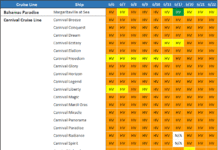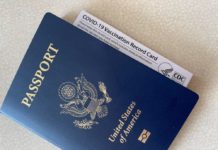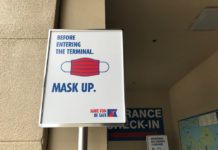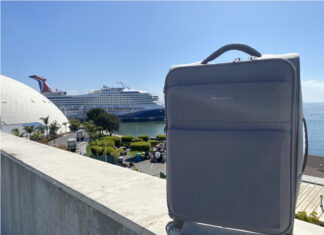The deadline for cruise lines to decide whether or not to join the CDC’s voluntary “COVID-19 Program for Cruise Ships” is February 18. Just one day before that date, the health agency has made a significant change to the program’s rules.
When the CDC rolled out a voluntary program for cruise ships earlier this month, many aspects looked similar to what was in place with the “Conditional Sailing Order” that expired in January.
However, the new program contained some significant changes for cruise lines. Among these changes were new classifications of ships based on vaccination status:
- Not Highly Vaccinated: These are ships sailing with less than 95% of passengers and crew sailing fully vaccinated.
- Highly Vaccinated: Ships with at least 95% of passengers and crew fully vaccinated, but less than 95% considered “up to date” with their vaccines. “Up to date” means having a booster dose of Pfizer or Moderna if eligible.
- Vaccination Standard of Excellence: This new category encompasses ships that have at least 95% of passengers and crew “up to date” with their COVID vaccines.
And based on those classifications, the CDC’s rules laid out quarantine guidelines for people considered close contacts to a positive case on the ship.
Previously, if a person was completely boosted and up to date on their shots, but sailing on a ship that was only considered only “highly vaccinated,” then they would have to quarantine for 10 days or until disembarkation — even if showing no symptoms at all.
The only relief was if the person had a documented recovery in the past 90 days.
However, if a ship was in the “Vaccination Standard of Excellence” classification, then quarantine for the person was reduced to five days or until disembarkation. You can see the previous rules below:
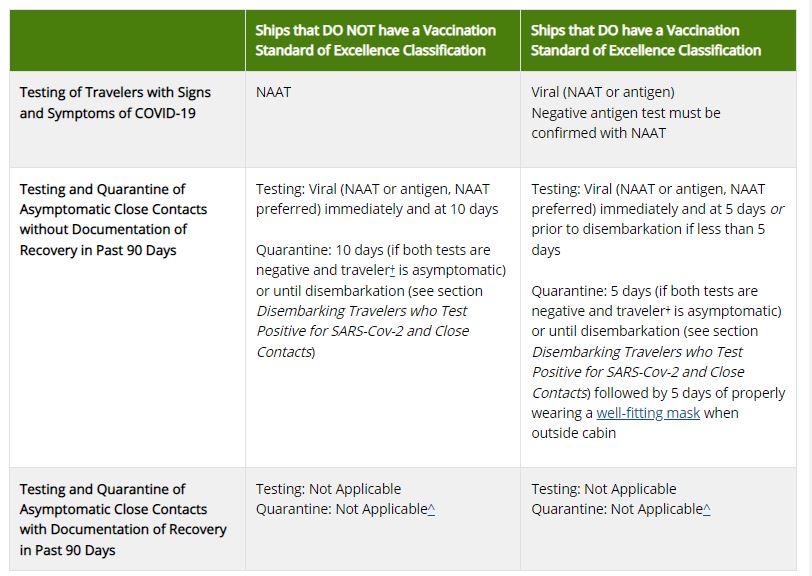
The cruise industry — represented by Cruise Lines International Association — expressed their displeasure clearly with the new guidelines.
“The CDC’s guidance for multi-tiered cruises is counterproductive to consumers, creating market confusion between the various tiers, and potentially unworkable in practice,” the trade group said in a statement.
New Updates Based on a Person’s Vaccine Status
It appears the CDC is listening. Among other changes, the health agency tweaked the rules today to offer eased protocols for close contacts of a positive case.
Now it doesn’t matter what status the ship has in regards to the new vaccination tiers. If a person is “up to date” on their vaccine (meaning fully vaccinated and having a booster if eligible), then the quarantine rules are more lenient:
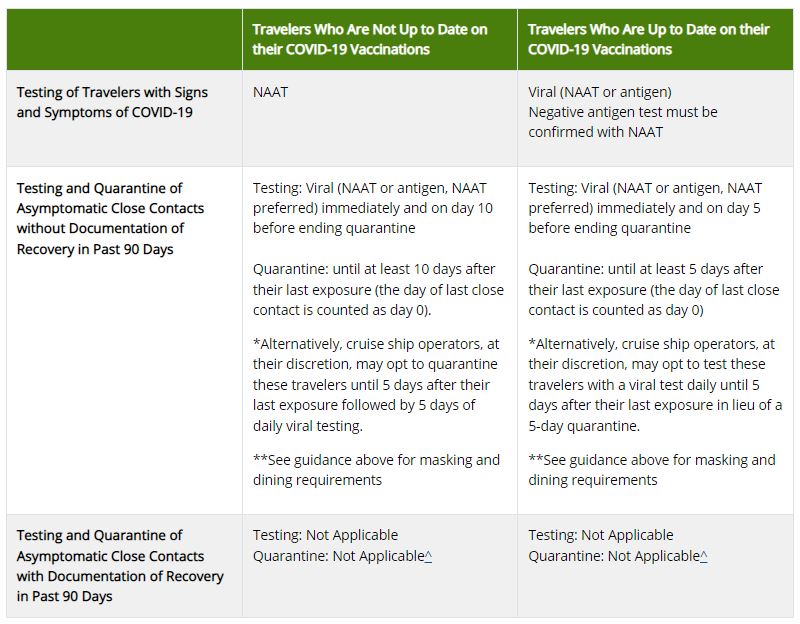
A person considered up to date and asymptomatic now can quarantine for five days or cruise lines can have the person test daily for five days. They would still need to wear a mask outside the cabin and dine in their room during that period.
If a person is not up to date, however, then they will need to quarantine for 10 days or quarantine for five days and then have daily tests for another five days.
A Big Change Just One Day From an Important Deadline
This change comes just one day before cruise lines are supposed to provide notice to the CDC on February 18 as to whether or not they plan to “opt in” to the health agency’s voluntary program.
Since the Conditional Sailing Order expired in mid-January, cruise lines have continued to work with the CDC and have largely followed the protocols put in place months before.
But now there is no requirement to follow the CDC’s program. Instead, lines can formally choose to opt-in to the “COVID-19 Program for Cruise Ships.” If they do so, then the CDC requires cruise lines follow all the requirements — not just some of them.
So far, it seems cruise lines are hesitant to join. As of February 16, just one cruise company — Norwegian Cruise Line Holdings Ltd. — had notified the CDC of its intention to opt in.
Major lines like Carnival Corporation, Royal Caribbean Group, and others have yet to provide a decision to the CDC one way or the other:

As it stands now, only 20 of the 112 ships currently tracked by the CDC would be part of the voluntary program. That may change with the upcoming deadline, but for now, the industry seems to be cool to the increased requirements.
“We are confounded by the CDC’s imposition of even more complex and unwarranted measures which ignore empirical evidence that the industry’s protocols have provided a greater level of COVID mitigation than most any other setting,” CLIA said in a statement.

